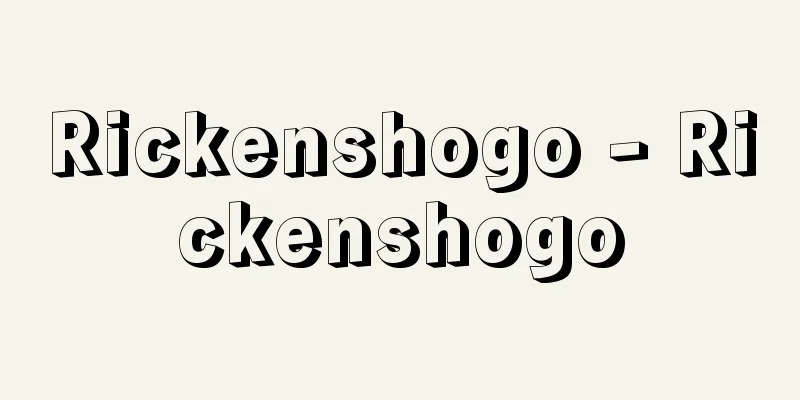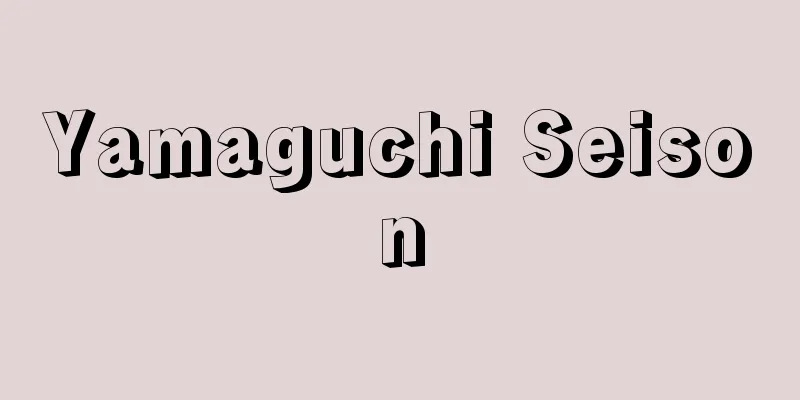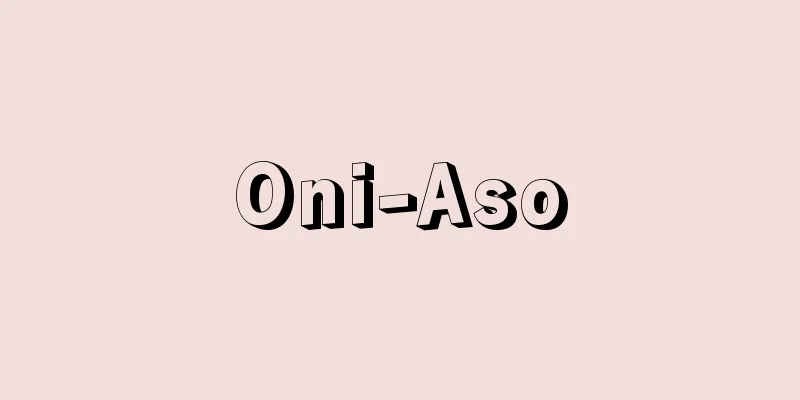Rickenshogo - Rickenshogo

|
This is the procedure for granting manors the privilege of not paying taxes. Cultivating and owning uncultivated land has been a legal act since the Law on Reclaimed Land Permanent Private Property, but land other than the privileged terada was subject to tax. If the owner of the cultivated land was a powerful family, he could apply to the government to make it non-rentable, and local feudal lords could donate their cultivated land to the powerful family to make it non-rentable. However, small cultivated land owned by farmers was taken into the hands of the provincial government and became provincial government land, so there was little possibility of it being non-rentable. If the application was approved, the government would dispatch a Daijokanshi (Grand Council of State envoy) to the site together with the kokushi (provincial governor), gunji (provincial governor), and the lord's envoy. In the presence of the envoy, the government would write down the four boundaries of the reclaimed land, the area (location, type of field, and area), and prepare a certificate. It would also stamp the four boundaries with a seal, and have the envoy prepare a map (map of the manor). This is called a tsukenshogo (a certificate of land acquisition), and one copy each of the certificate and the map was kept by the lord, the kokuga, and the Ministry of Civil Affairs for future reference. This was the Kanshofusho (manor's official document). However, it was impossible to dispatch an official document to a remote location, so it was left to the discretion of the kokuga, and the exemption from tax on newly reclaimed land within the four boundaries required the kokushi's decision. For these reasons, the number of manors established by kokufu increased in the late Heian period. This is called kokumen no sho (manor's official document). Also, during the Insei period, Imperial envoys replaced government officials, and in some cases non-import was permitted by Imperial Court documents. Places that received Imperial Court documents from the three retired emperors Shirakawa, Toba, and Goshirakawa are known as the sites of the Three Generations of Kisho. [Murai Yasuhiko] Source: Shogakukan Encyclopedia Nipponica About Encyclopedia Nipponica Information | Legend |
|
荘園に不輸租の特権を与える手続。未墾地を開墾し領有することは、墾田永年私財法以来認められた合法的行為であるが、特権を与えられた寺田以外は輸租田であった。そこで墾田主が権門の場合、政府に申請して不輸租化を実現し、地方豪族はその所領墾田を権門に寄進付託することで不輸租化を図った。ただし農民の小規模墾田はそのまま国衙(こくが)に把握されて国衙領となり、不輸租化される可能性はまずなかった。さて、申請を認めた場合、政府は太政官使(だいじょうかんし)を派遣し、国司・郡司や領主側の使者とともに現地に臨み、立会いの下に、墾田の四至(しいし)(四境)、坪付(つぼつけ)(場所、田畑の種類、面積)を注して券文を立て(つくり)、四至に牓示(ぼうじ)を打ち、また図使に絵図(荘園図)をつくらせた。これを立券荘号といい、券文と絵図は、領主、国衙、民部省にそれぞれ一通ずつ保存され、後証に備えた。これが官省符荘である。しかし官使の派遣は遠隔地の場合不可能で、国衙の判断にゆだねられたこと、また四至内新開田の不輸租化は国司の免判を必要としたこと、などから、平安後期に入ると国符による立荘が増えた。これを国免荘(こくめんのしょう)という。また院政期になると、官使にかわって院使が下り、院庁下文(いんのちょうくだしぶみ)で不輸が認められた場合もあり、白河(しらかわ)・鳥羽(とば)・後白河(ごしらかわ)3上皇の院庁下文を得たものを、三代起請(きしょう)の地と称する。 [村井康彦] 出典 小学館 日本大百科全書(ニッポニカ)日本大百科全書(ニッポニカ)について 情報 | 凡例 |
<<: Constitutional Party - Rikkenseito
Recommend
Izumi Tayu - Izumidayu
...One of the early Edo joruri. It is said to hav...
Dwight David Eisenhower
A US Army marshal, a hero of World War II, and th...
British style printmaking
...The German Ludwig von Siegen (c. 1609-80) disc...
Invagination
…These changes gradually spread to the vegetal po...
Sialk
Located in the central part of the Iranian plateau...
Tolosa
…Today, the city's population has expanded to...
Araujia sericofera Brot.
An evergreen climbing shrub of the Asclepiadaceae ...
Oita Tsurusaki coastal industrial area - Oita Tsurusaki coastal industrial area
...Industry included textile factories in Oita an...
Daizen (English spelling) Grey Plover
A bird (illustration) of the Charadriiformes order...
Enkyu Manor Reorganization Order
...In this way, government property became taxes ...
Yokoshima [town] - Yokoshima
A former town in Tamana District, northwestern Kum...
Layman - Koji
In China, it means a virtuous man who is not in g...
"Travel Journal" - Gyōrekiki
...An abridgement of Enchin's diary of his tr...
Gagaku Instruments - Gagakki
...In China, gagaku means "music of elegance...
Bulbous bow - Bulbous bow
A ship's bow has a bulbous bulge below the wa...




![Oda [town] - Ota](/upload/images/67cb1e3fdee6b.webp)




